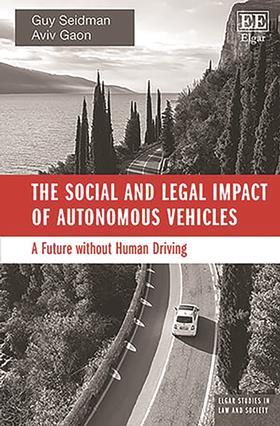The Social and Legal Impact of Autonomous Vehicles: A Future Without Human Driving
Guy Seidman and Aviv Gaon
£90, Edward Elgar Publishing
★★★✩✩
It is hard to overstate the place of the motor vehicle in society and culture. For more than a century it has revolutionised the lives of millions, shaped the designs of entire cities and been central to major economies. Now we possess technology that can not just assist but wholly replace human drivers. How many owners will be prepared to abandon beloved machinery in favour of autonomous vehicles? Those using cars purely as a tool, perhaps (rather than enjoyment or, for a wealthy few, an investment), but even for them it will still be a psychological adjustment handing over control to artificial intelligence. Meanwhile, the legal system will have to determine liability for accidents, errors of navigation and other problems.
To prepare the legal ground, several books on AI and the law have appeared recently, including this one by two Israeli academics. As indicated by the title, their scope is wider than just black letter regulation of AI vehicles, extending to broad questions of environmental and social impact.

The book begins with a background discussion on cars, humans and technology, and then turns to the arguments in favour of autonomous vehicles. In theory, autonomous cars should be considerably more efficient and environmentally friendly. For each journey, AI would determine the best route, manage the traffic, put an end to aggressive driving and pointless lane-swapping, determine parking in advance, and perhaps even create a completely different ownership model such as a giant car-pooling scheme. Although the costs of AI infrastructure would likely be substantial, there would be other long-term savings such as reduced road maintenance costs.
The authors discuss the rather arcane point of whether law relating to vehicle usage should form an academic discipline in a more intellectual sense than it has been historically, something probably of not much concern outside law schools. Of wider interest is their view of how self-driving cars will be introduced. The solutions will vary between different geographical areas. The authors suggest, for example, that AI-only lanes are a necessary step towards full automation – but that assumes that all or even most roads have more than one lane. Clearly, the introduction will need to be tailored to different regions, and require substantial collaboration between neighbouring countries.
Overall, the book is a thought-provoking contribution to a debate that is not just important but unavoidable.
James Wilson FRHistS is an independent legal author. His most recent book is Lord Denning: Life, Law and Legacy (Wildy, Simmonds & Hill, 2023)































No comments yet